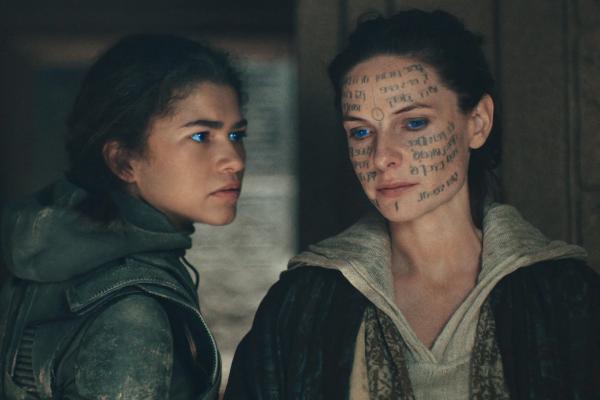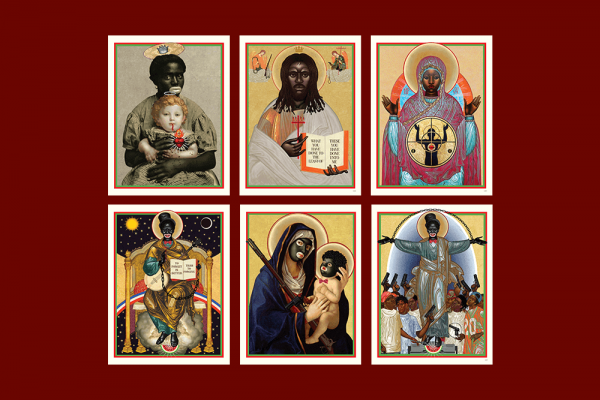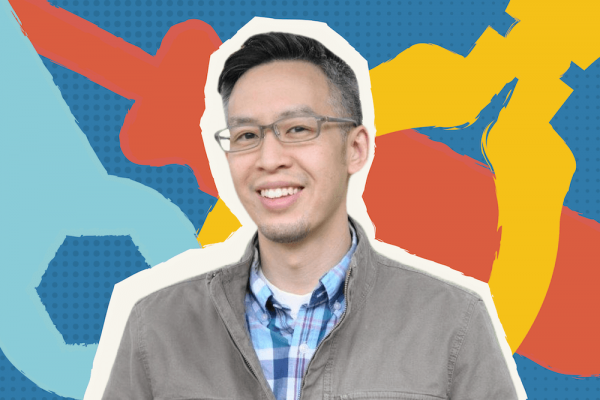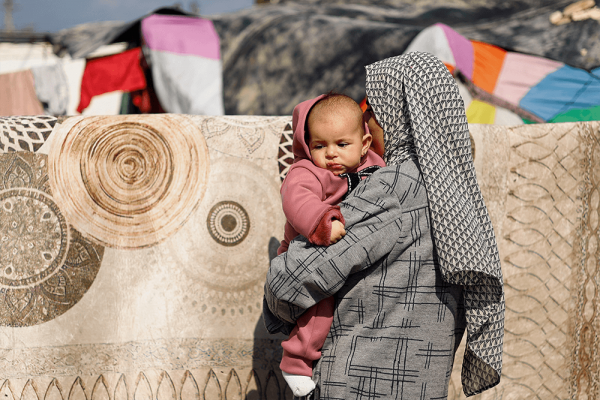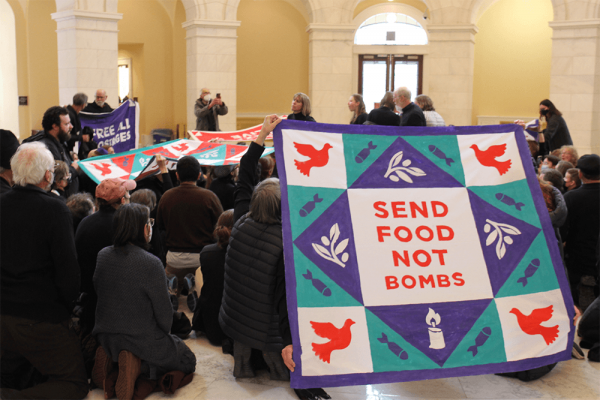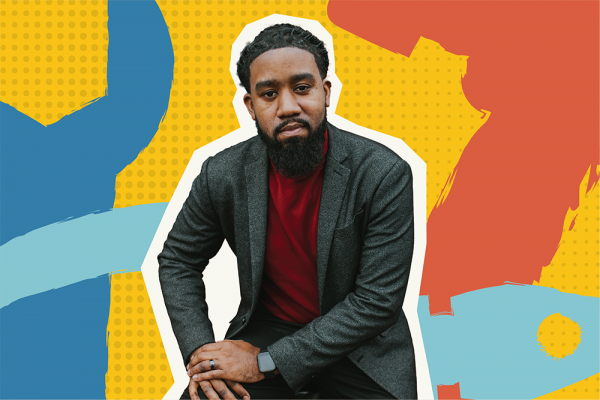Each year at Sojourners we celebrate Women’s History Month by honoring the work of Christian women who are guiding the church to become a place of deeper welcome, justice, and wholeness.
Though Paul might be a Christ, an “anointed one,” he’s no Jesus. His road does not lead to a Roman cross. Instead of forfeiting power, he’s supposed to accumulate it.
As racist ideas continue to plague U.S. politics, Mark Doox’s Afro-surrealist and satirical graphic novel, The N-Word of God, couldn’t have arrived at a better time.
The book is a visual novel told through depictions of anti-Black images — Black people eating watermelons, Jim Crow caricatures, mammies, and blackface — all stylized in the form of Eastern Christian iconography. This is a style that Doox has termed “Byzantine Dadaism.” Doox’s novel deconstructively takes these caricatures that have historically harmed Black people and reimagines them as symbols of Black resilience and healing, restoring the inherent dignity that belongs to every human being, especially those who have been racialized and subjugated by U.S. anti-Blackness.
I originally met educator and grassroots theologian David Leong in 2016 after I emailed him on a whim, telling him I was coming to visit friends in Seattle and that I’d like to meet him for coffee. I had just read an advanced copy of his book Race and Place, about churches in urban contexts, and was impressed by the conversational tone it took when addressing issues like race, class, and gentrification.
The Cycle 40 fellows bring our values of stewardship, joy, grace, and storytelling. We are committed to an atmosphere of continued learning, both spiritual and political, as we put our faith in action for social justice. We are grateful for the 50+ year legacy of the Sojourners community and strive to contribute to its continued purpose.
When Israeli troops stormed Nasser Hospital in southern Gaza, the ensuing chaos effectively shut down the hospital, with soldiers forcing women and children to leave the maternity ward according to Doctors Without Borders. The invasion of the hospital underscored the heavy toll the Israeli assault has had on pregnant people and infants. Doctors Without Borders described Israel’s incursion as forcing “inhumane” birthing conditions.
I have a testimony: At the end of last year, I felt an unshakable sense of dread about the 2024 elections and all that it could entail. This dread was accompanied by an acute feeling of burnout, fueled by my exhaustion with how broken and polarized our politics have seemingly become and how another election year would test both our faith and democracy. This burnout showed up in restless sleep, nagging fatigue, and a frustrating sense of déjà vu, all of which impacted my mental, physical, and spiritual health.
Earlier this year, I was arrested alongside more than a hundred other Mennonites in Washington, D.C., as we raised our voices in song, demanding that our elected officials call for a cease-fire in Gaza. Being a part of this act of peaceful civil disobedience, organized by Mennonite Action, gave me a sense of clarity about my faith that I had sought for years. As Capitol Police officers zip-tied my wrists behind my back, I sang louder and thought to myself: “This is what it means to be a Christian. This is what pacifism meant to my Mennonite ancestors.”
Hirayama’s mundane work of toilet washing becomes a sanctified act, for one simple reason: He does it for other people.
I am sick of the way many white Christians talk about “the Black church.” My frustration is nothing novel: Some white Christians are desperate to ask Black Christians to justify their institutions and concerns. Other white Christians romanticize Black institutions, flattening complexities and nuances that are natural to any multifaceted group. And if I’m sick of it, I can only imagine how Black Christians feel. So, when I sat down with Tyler Burns, pastor of Rise City Church in Pensacola, Fla., and president of The Witness: A Black Christian Collective, I told him explicitly that I would try not to subject him to that sort of conversation. In his role at The Witness, Burns helps lead an organization that hosts writing, conferences, podcasts, and more centered on the Black Christian experience. He co-hosts the flagship podcast, Pass the Mic, which recently celebrated its 10th anniversary.

